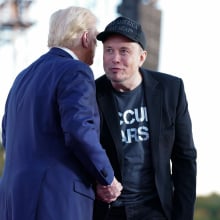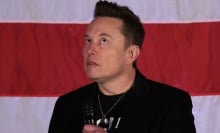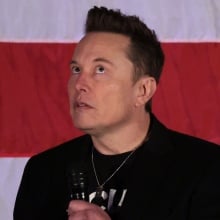Elon Musk's X appears to be adding yet another fee for third party apps, according to an affected app developer.
After acquiring then-Twitter, Musk made big sweeping changes to the platform's API, which allows third-party developers to integrate X into their platforms. The biggest change? Charging thousands of dollars just to access X's API, which used to be free to use for most developers.
Under Musk, many app developers found that they'd have to pay $42,000 per month, in order to continue using X integration.
Some third-party companies like Sony, Microsoft, and Nintendo just removed X from their app. Many apps that depended on X API access had to shut down. However, some companies had no choice but to fork over the $42,000 per month just to access the lowest-priced tier of X's Enterprise API plan.
Now, those companies that are paying tens of thousands of dollars to X per month are being asked to pay additional fees to the tune of $1 per month for each account that will be connecting to X's API through their app. Again, this monthly $1 per account fee is on top of the $42,000+ per month companies are already paying for X API access.
Musk squeezing developers dry for a buck
Social media management app Publer was the first to go public with the most recent X API changes.
"I just got off a call with our Enterprise Partner Manager at Twitter/X, and unfortunately, I have some bad news for those using the free version of Publer," Publer founder and CEO Ervin Kalemi wrote in a post on X. "In addition to the hefty Twitter/X API Enterprise fee ($42K/month), starting November 1st, we will also have to pay $1 monthly for each Twitter/X account connected to Publer. Long story short, we can no longer support Twitter/X for free."
Mashable reached out to X for confirmation and any more information about this apparent change to the platform's fee structure, and we will update if we hear back.
To get a better understanding of what these fees mean to third-party app creators, here's an example: According to Publer's own reports, the company was making between $125,000 and $140,000 per month at the beginning of the year. Based on those numbers, X currently takes more than one-third of Publer's revenue each month due to the $42,000 per month API cost.
Let's say a social media management company like Publer charges users $10 per month to manage their social media through their app. Based on Publer's previously reported revenue, that means Publer could have up to 14,000 paying customers. If each paying user connects just one X account to use on Publer, those new X per account fees could now cost Publer an extra $14,000 per month or $168,000 per year. Again, this is in addition to the $504,000 per year a company like Publer already pays X for the lowest tier of X's Enterprise API access.
And if you're wondering how much other social media companies like Facebook, Instagram, Threads, TikTok, and YouTube charge developers and companies for API access, it's nothing. All those companies provide API access at zero cost, free to use.
X's once-lively app ecosystem barely exists now
Charging exorbitant fees for API access is easily one of the more controversial decisions that Elon Musk made after acquiring then-Twitter. Before Musk, Twitter was known for having a robust third-party app ecosystem.
Indie developers as well as larger companies were freely creating their own apps that provided Twitter users with additional functionality not built-in to the platform itself. Some found financial success with their apps that utilized Twitter's free API. However, in return, these third-party apps encourage content creation, engagement, and overall Twitter platform usage.
Since Musk took ownership, however, many of those apps have since shuttered. The once-bustling forums and message boards where developers shared daily news and tips about Twitter's API are now dead. The developers that can afford it are being forced to pay dearly to keep their apps afloat. With the latest additional API fees, it'll be interesting to see how many developers continue to allow themselves to be squeezed by Musk.














